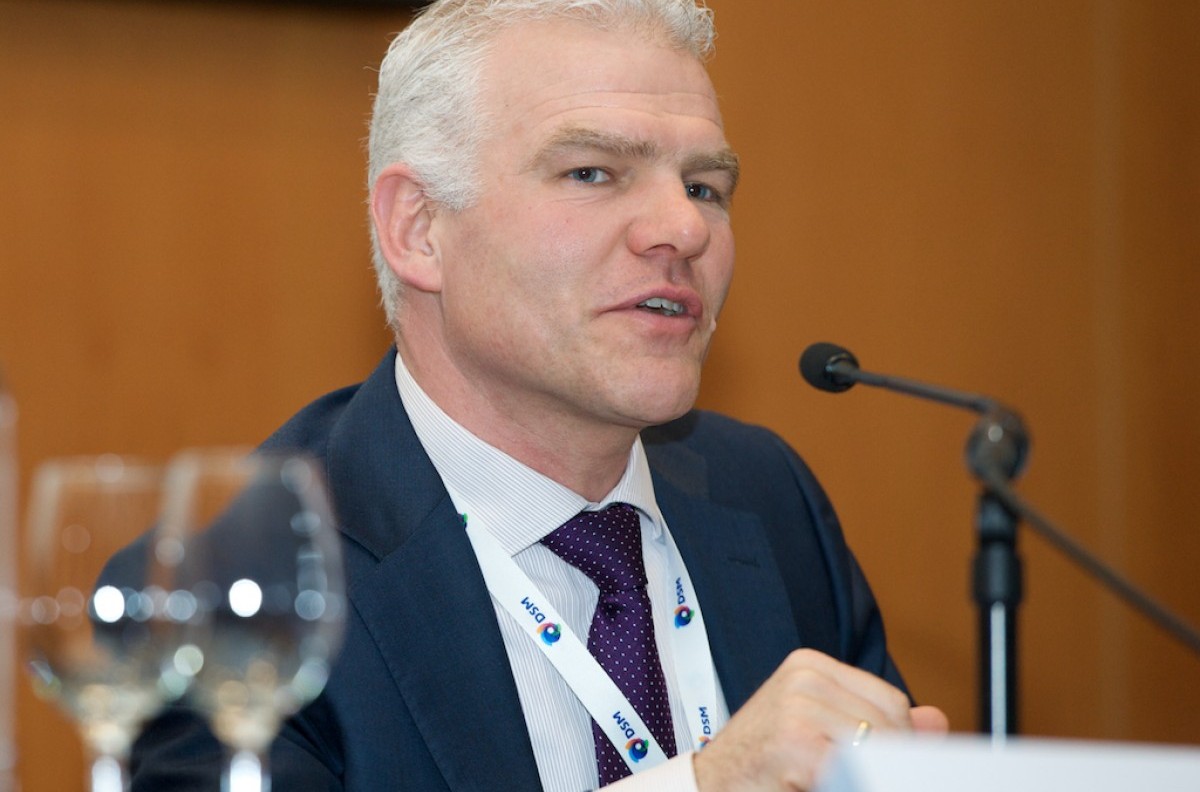News
18-03-2014
Biorizon at World Bio Markets 2014
In March 2014 Biorizon was silver sponsor of the World Bio Market conference in Amsterdam. The Shared Research Center gathered a lot of interest, especially from the industry. Both Joop Groen and Jan Harm Urbanus got the opportunity to give a lecture on developing profitable, functionalized biobased aromatics.
Some key take-aways (source: WBM Blog by Charlotte Linfoot)
1. Research, innovation and legislation are key in EU regions
In the keynote session, The Significance of a Global Bio-based Initiative, the European Commission’s Jaques Verraes and Biobased Industries Consortium’s Marcel Wubbolts discussed the massive investment drive in research and development. Jaques stated that every 1€ invested in the EU-funded bioeconomy will lead to €10 of added value in bioeconomy sectors by 2025.
They also highlighted how Europe is “playing catch-up” in the bio economy to the more advanced regions such as the USA, Brazil and Asia, as legislation holds project development back.
ePure’s President Rob Vierhout had one message for government: “This industry needs legal backing.” He talked passionately about EU restrictions in the bio industry and their effect on the development of global businesses.
2. Take advantage of the big growth opportunities that lie in untapped markets
In our panel discussion on Bio-based Global Policy and Trade, The UN’s Dr Gerard Ostheimer talked about the opportunities in the developing world, calling on businesses to “be adventurous” in investing in new markets such as Southern Africa and South East Asia. He used Brazil as a country that was reliant on imported fossil fuels in the 70s and 80s and, after investing in biofuels, is now one of the world’s leading bio markets.
3. Bio hubs are the way forward in feedstocks
We had a panel of senior speakers sharing their perspectives on the sustainable feedstocks sector; from farming, technology, logistics and development to finance. The food versus biomass political debate was swiftly quashed, as all speakers discussed the opportunities that lie in developing bio hubs in different regions.
The consensus was that bringing the total supply chain together in a collaborative way was the route to commercial success. And by starting with a simple, economically viable product, you can develop the downstream process to create new bi-products and new commercial opportunities.
4. Take lessons from successful early roll-outs to drive efficiency in biorefinery design
Although it’s early days in the roll-out of Cellulosic Ethanol facilities, both EPC company KBR and plant owner Beta Renewables’ experiences indicated that these early plants are being rolled out in a careful and well-planned manner, providing a wealth of important data and insight into the 1st-in-kind challenges such plants inevitably bring.
With 2nd-in-kind and later plants potentially giving 20% or more cost reductions, and companies already starting to add multi-product capabilities, these early experiences are vital proving grounds to drive future growth of the 2nd generation industry.
5. Man-made climate change is happening, the industry needs to speed up its bio fuel development
Dr Rajendra Pachauri from IPCC opened the plenary session with some shocking statistics on climate change, calling on a more sustainable energy system, stating that CO2 emissions must reach a peak no later than 2015.
In the context of the automotive industry, Dr Manfred Schuckert at Daimler called for a “harmonised auto-fuel vision for future biofuel policy”.
6. Growth of the bio economy is driven by innovation, collaboration and, above all, the consumer!
A highlight of the day was our morning panel discussion: Growing the Bio-based Economy. Speakers comprised DSM’s Anton Robek, UPM Biofuels’ Dr Michael Duetsch, Beta Renewables’ Michele Rubino and Stora Enso’s Jouko Karvinen.
Our panel all agreed that the pace of change in the bio economy requires collaboration and sharing knowledge across the entire value chain. It was agreed that there was still a need for a strong, competitive marketplace and small, innovative and entrepreneurial companies will drive the development of bio-based technologies. Collaboration with larger companies will then provide a platform to replicate success.
Stora Enso’s CEO Jouko Karvinen argued that “the consumer drives everything”. He said that collaboration needs to happen across the whole value chain – even with the end users. He finished by stating, “We need to speed it up if we want to win this game – but no one in this room is going to do it alone.”
7. Yield is key to reducing the cost of advanced biofuels
Our panel in the Reducing the Cost of Advanced Biofuels session included senior speakers from DSM, Clariant, CTC, Biogasol and Dyadic. All offered their own perspectives on some critical aspects of biofuel development from farm, to process and transportation, to end user.
Views ranged from investing in closing the technological gap for feedstocks such as sugar cane, to on-site enzyme production and, finally, plant optimisation. All agreed that the price of feedstock will only go up, and after that, yield is the second largest factor affecting cost.
A common theme that emerged in this session also was collaboration. If collaboration could improve across the value chain, product infrastructure would improve, creating an opportunity to give consumers a choice of alternative fuels.
8. There’s more to do to scale up bio-based chemicals vs biofuel
Our panel included leaders from Sinvestec, Neste Oil, BASF and Deinove. All gave their own views on scaling up and the future outlook for chemicals over fuels. BASF outlined key market drivers for both fuel and chemicals, with biofuels being the dominant market in terms of volume and revenue.
Comments included, “If the chemical technology is going to scale up it has to stand on its own two feet, as there is less support and fewer incentives for scale up compared with biofuels."
9. Drop-in vs new molecules: “Like a stronger horse versus a T-Ford”
A great panel line-up in the bio-based chemicals and products stream discussed Drop-ins vs New Molecules. Speakers from both sides of the coin were represented, from Far Eastern New Century, Rivertop Renewables, E4Tech and Virent, each highlighting the opportunities and challenges in their respective fields.
During the debate, Mike Knauf from Rivertop Renewables compared the two, saying “Drop-in versus new molecule, it’s like a stronger horse versus a T-Ford.”
10. The sustainable feedstocks industry needs multi-generational, long term policies
Today’s sustainable feedstocks panel comprised Pete Harrison from the European Climate Foundation, Chris Malins from the International Council on Clean Transportation, Pietro Caloprisco from Transport & Environment (T&E), Willemijn van der Werf from Lanzatech and Sari Mannnonen from UPM Biofuels.
The session was led by David Turley from the NNFCC, and all panellists agreed that long term policies (that include targets after 2020) need to be in place to help the industry take off.
11. Treat waste as a resource
Industry leaders from SITA, Bio Oils, AlterNRG were joined by Research Fellow Maria Sotenko to discuss challenges in the industry and to explore new, novel ways of using waste as a feedstock.
A key issue raised was the conflict between feedstock and recycling. The two are compatible and a balance can be found by minimising the waste first, however some admitted they were “anti-recycling”, since this reduces the waste available.
Stuart Hayward-Higham, Technical Director at SITA emphasised the importance of “squeezing every ounce of energy out of the process” and said “some of us treat waste as a resource”.
Photo: Joop Groen, Business Development Manager at Biorizon, moderating a panel discussion at World Bio Markets 2014.







